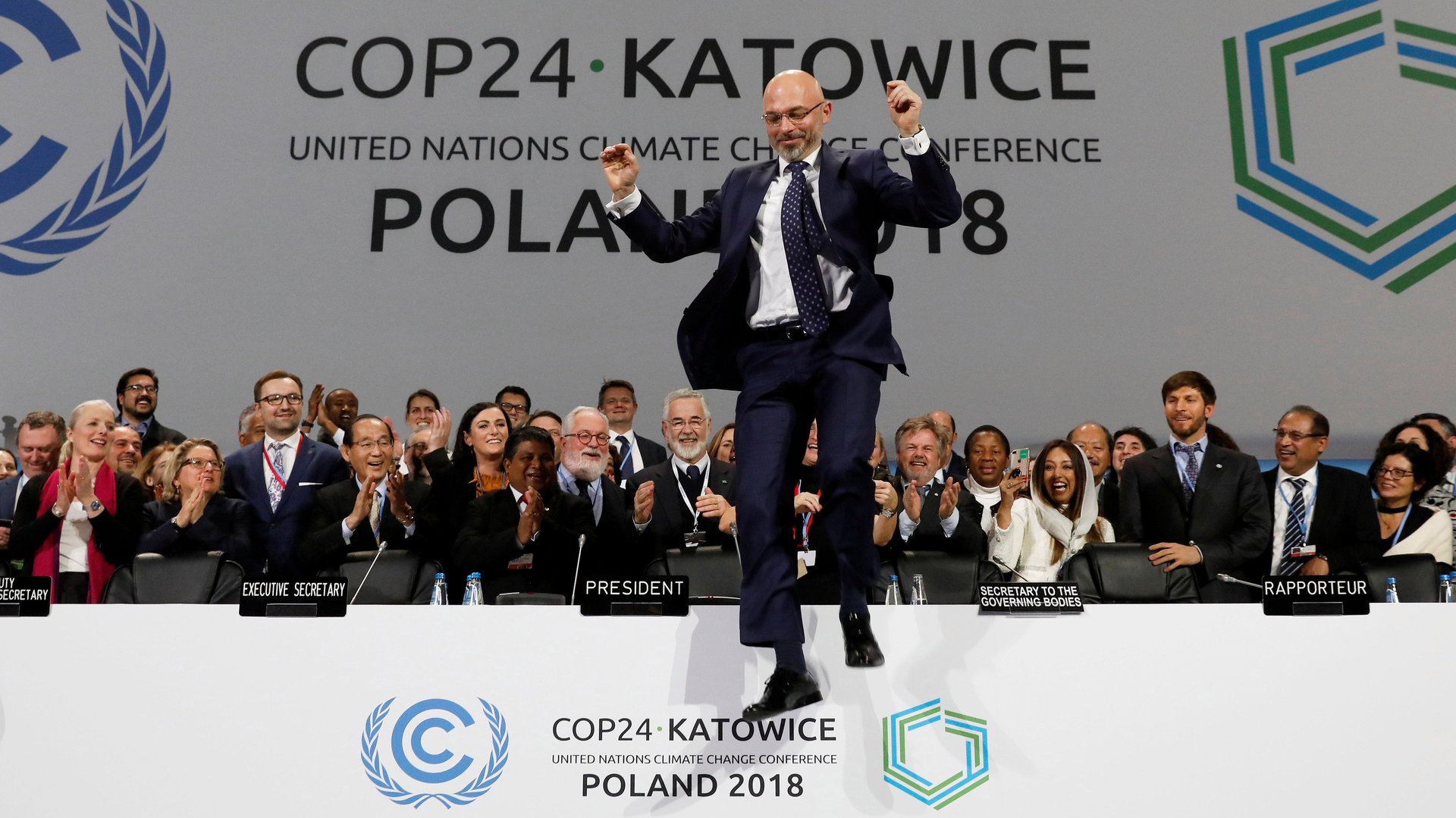Why the latest climate summit is a mixed bag for India
The COP24 summit, concluded over the last weekend in Katowice, has left a lot to be desired for developing countries like India. This is despite the outcome of the talks being officially welcomed by the country.


The COP24 summit, concluded over the last weekend in Katowice, has left a lot to be desired for developing countries like India. This is despite the outcome of the talks being officially welcomed by the country.
On Dec. 15, at the end of the United Nations climate talks, 200 countries decided on the rules to implement portions of the Paris Agreement, which they signed in 2015 to limit the global temperature rise to “well below 2°C.”
The new rulebook states that countries will be subject to uniform standards for providing information about progress on their self-determined targets to reduce greenhouse gas emissions.
“India considers the outcome of COP24 a positive one,” said a statement from the country’s ministry of environment, forest, and climate change (MoEFCC).
However, key demands of India as well as other developing countries did not find their way into the Katowice rulebook.
Differing responsibilities
The Paris Agreement states that developed and developing countries have different responsibilities to fight climate change.
Developed countries, historically the biggest emitters of carbon dioxide, are expected to take greater responsibility for climate action. Citing “the principle of equity,” the agreement asks them to “take the lead” in reducing emissions. Equity and differing responsibility were also earlier recognised in the Kyoto Protocol and the UN Framework Convention on Climate Change.
But despite India’s push, developed countries led by the US blocked an acknowledgment of these principles in the Katowice rulebook.
“India was the only country which raised this issue. We had wanted greater emphasis on equity during the global stocktake in 2023,” said a senior MoEFCC official and leading member of India’s negotiating team at Katowice who wished to remain anonymous.
In 2023’s “stocktake,” countries will come together to measure whether emissions are on track to keep global warming within the limit.
Individual countries have set self-determined targets to reduce their carbon emissions under the Paris Agreement. But the UN Environment Program notes that, collectively, these targets will need to be raised three times to limit global warming to 1.5°C. An emphasis on equity in the rulebook would have put greater pressure on developed countries in 2023 to do more than the developing ones.
“There has been a watering down of the principle of equity,” said Rajani Ranjan Rashmi, former special secretary of the MoEFCC who was India’s point person for climate negotiations from 2008 to 2013. “It is difficult to guess what would happen when the challenge comes to share global responsibilities.”
After the rulebook was finalised, India formally expressed “its strong reservation regarding the treatment of equity in the global stocktake decision.”
Climate finance
Under the Paris Agreement, developed countries have to provide financial resources to developing countries to help them mitigate and adapt to the risks posed by climate change. In Paris, the developed countries had pledged an annual mobilisation of $100 billion for the developing world starting from 2020.
India and other developing countries wanted a transparent roadmap on how these funds would be transferred, but for now, they will have to wait.
“The rulebook had to define what all will constitute ‘finance’, and how it will be reported and reviewed. But at Katowice, rules on financial contributions by developed countries have been diluted,” said a statement from the Centre for Science and Environment (CSE), a New Delhi-based think tank.
“Developed nations will somehow write the ledger to show that they have given $100 billion dollars,” said Chandra Bhushan, CSE’s deputy director general. “Developing countries’ demand that climate finance be new and additional (to other investments) has not materialised.”
Besides, developing countries say the $100 billion figure is too little to meet their climate-loss needs. “Just one climate-related extreme weather event like the Kerala floods costs India tens of billions of dollars,” Bhushan said.
Developed countries at Katowice, however, have agreed to revisit the process for scaling up their financial support in 2025.
Carbon market
The Paris Agreement will create a new market for trading carbon credits. Earlier, an existing market structure from the Kyoto Protocol allowed industries in the developing countries to earn carbon credits by reducing their emissions. Developed countries could then buy these credits to meet their own reduction targets.
India and China silently supported Brazil during its stand-off with developed nations to whether it can carry its carbon credits from the existing system to the new one. However, the developed countries oppose this on the grounds that rampant corruption in the existing system has delegitimised the carbon credits of the developing countries.
But the deadlock with Brazil wasn’t resolved, and a decision on the rules for the new market has been postponed till next year’s climate talks.
Climate science endorsement
In October, the UN Intergovernmental Panel on Climate Change (IPCC) released a landmark scientific report which concluded that though it is possible to cap the global temperature rise at 1.5°C, the world needs to radically shift away from fossil fuels.
The report notes that south Asia will be especially vulnerable to the effects of climate change.
While India and the rest of the world favoured a formal endorsement of the report at Katowice, four oil-exporting countries—the US, Russia, Saudi Arabia, and Kuwait—blocked the move, leading to a watering down of the supporting words.
The rulebook now expresses “appreciation and gratitude to the Intergovernmental Panel on Climate Change and the scientific community” for the report.